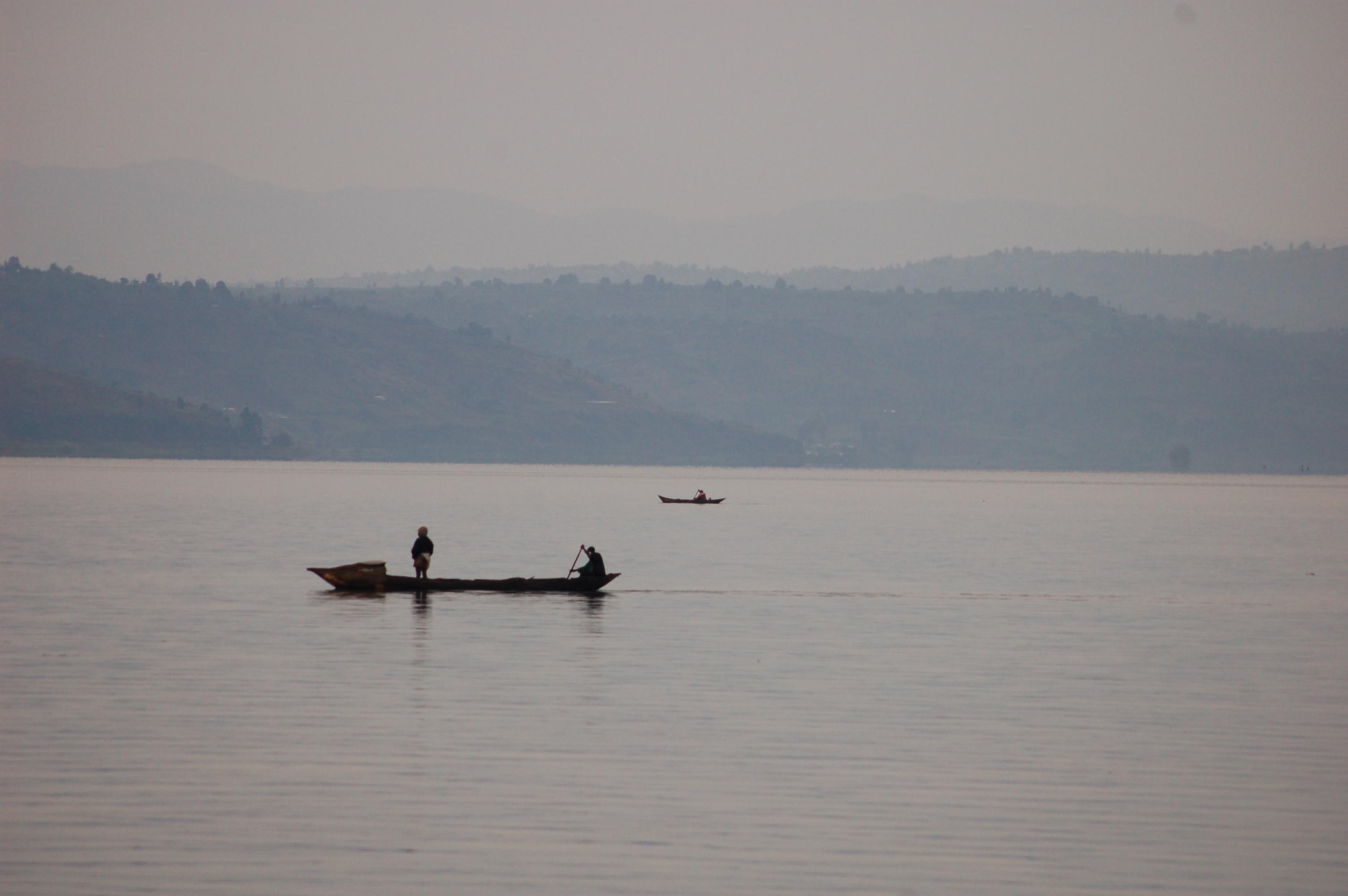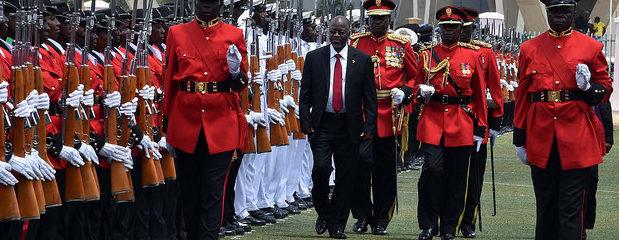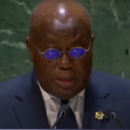Why Herbst and Mills are wrong about Congo’s “invisible state” – By Christoph Vogel

The Democratic Republic of the Congo is a failed state/The Democratic Republic of the Congo is falling apart/The Democratic Republic of the Congo does not exist.
By relying on tired clichés in yet another relentless description of the Democratic Republic of the Congo (DRC), Herbst and Mills have created a climax for the usual headlines in contemporary analyses of the country. While avoiding the Conradian metaphor of the “heart of darkness”, they still succumb to several simplistic explanations.
The DRC’s administration and its institutions clearly do not function in the classic Weberian terms of legal-rational statehood, let alone in those of Westphalian sovereignty. It neither wields a monopoly of violence over its territory nor does it provide basic goods such as security or infrastructure to its citizens. Almost all public services appear to be defunct in one way or another. But that does not necessarily mean the DRC is a “nonstate” as Herbst and Mills argue. Such assumptions disregard a considerable part of the problem – the Congolese state as it currently exists.
Life in the DRC is framed by the massive presence, not absence, of the state. In urban areas, the concentration of policemen and military is so strong that getting “˜taxed’ illegally is almost unavoidable. Despite public services being in a state of chaos, it is still necessary to have every tiny administrative issue stamped and signed to prevent future hassle. In rural areas the presence of the state is less dense, and admittedly in some areas very limited. Nonetheless, its influence is heavy – in particular where state representatives also hold customary office. In spite of their vocal complaints about the state, Congolese people generally do not deny its existence and always maintain a sense of patriotism.
Despite being concentrated in metropolitan areas such as Kinshasa, Lubumbashi, Goma and Bukavu, the state is present across the territory – the tipping point is much more the quality and impact of its presence. In these places and even more so in rural areas, it is both the state and the international community that are reluctant to engage in implementing service provision.
The blatant refusal of all actors involved in the disarmament (DDR) process to establish at least a semi-permanent rural presence is among the most crucial examples. This includes the Congolese state, the UN, and the World Bank and it contributed to the failure of DDR due to lack of oversight and follow-up. Likewise, in a strikingly senseless approach, most donors and actors in the field of security sector reform (SSR) – without doubt one of the most pressing challenges – refuse to participate in coordination mechanisms to avoid overlapping or neutralizing each other.
On a different note, statistics are of limited help, given the obstacles to gathering quantitative data on the DRC. Its vastness and lack of infrastructure makes it virtually impossible to do more than extrapolation, thus indices and rankings always have to be taken with a pinch of salt. Moreover, there are some tiny factual errors in Herbst and Mills’ article – conflicts in the DRC have erupted for at least the last 21 years, not 17, and DRC is certainly not the second biggest recipient of aid since 2000. Also, Bakata Katanga translates “they cut Katanga”, not “dividers of Katanga”, since few want to divide Katanga, they rather want to secede it from the remaining Kinshasa republic.
Back to business: This is not a denial of the fact the DRC, and its citizens in particular, are in unparalleled distress. Almost anywhere in the DRC populations suffer from man made or avoidable catastrophes. There is no doubt that elites, if not inducing havoc, at least fail to counter it. Regional and international actors share the blame as they continuously either install or stabilize a dysfunctional government or otherwise destabilize the country from outside. Much more than the absence of the state, its conquest by partisan interests is the issue – an example well-represented by both Belgian and Mobutist rule.
The “˜fend for yourself’ dogma established by Mobutu in his three decades reign followed a path of societal and institutional destruction the West initiated during colonialism and the turmoil during the country’s first few years of formal independence. Its consequences are now more visible than ever.
One of the DRC’s core problems (besides ongoing armed conflict, SSR, health, education, and economic development) is historical: a fatal blend of our Western concept of statehood with local traditions. Following Max Weber’s still appealing logic, even a patrimonial system has enough complementarities to function well. The problem arises when complementarities are destroyed – mixing up person-centred and institution-centred social contracts caused exactly that. These days, land and property rights are the field to observe in that regard – contradictory laws at the customary and public level are at the root of numerous local conflicts.
It is hard to enumerate to what extent the outside framing as “˜state failure’ has contributed to this status quo, but there is a good case to believe that if we invested in understanding the productive (even if often violent) side of the coin, instead of merely focusing on the destructive one, our impact could improve. Much more than debating the “˜nonstate’, implying the absence of governance, we should try to understand the governance without government that has become a defining paradigm in the DRC.
It is laudable that Herbst and Mills address a series of issues that have gone wrong in the DRC. There is also little doubt that the deployment of the MONUSCO intervention brigade exemplifies the lack of coherence and understanding that still prevails in Western administrations and at Turtle Bay – not least due to the fact that the UN is at the same time endorsing peace talks in Kampala.
Nevertheless, denying the existence of a Congolese state, despite the temptation to do so, denies the Congolese the fact that as an entity they stand at the same level as other states. If you ever happen to visit the DRC and talk to people in Kinshasa, in Goma or the middle of nowhere, you will be impressed how much Congolese people still refer to their self-perception as an entity, a state, regardless of the latter’s rampant loss of popular legitimacy and trust. It sounds paradoxical, but to better understand Congo we are well advised to deepen the exploration of what appears illogical to us.
Christoph Vogel is a Mercator Fellow on International Affairs. He tweets in personal capacity @ethuin and blogs at www.christophvogel.net.







Dear Mr Vogel, Thank you for this article discussing the inner workings of the Congolese state. Clearly, as you point out in your last paragraph, the Congolese see it as a state so observers should look for how it actually works rather than force fit to a standard definition. There are models however (not Conrad) that can be helpful. See for example: Patronage or Politics in the Eastern Congo at michaelmargravechambers.blogspot.com/. Its an approach that won’t help you get tenure perhaps but will ease your ability to operate with the realities of that extraordinary country. MC
Christoph Vogel presents a solid rebuttal to the Herbst & Mills no-Congo-state litany. I would add that the very strong sense of national identity – being Congolese, and being proud of being Congolese – is another very powerful counter argument to them. This Sunday 30 June marks 53 years of independence from Belgium. Fifty three years is a turning point because Congo has now been independent a year more than the 52 years of (paternalistic) colonial rule (1908-1960). People are going to be commemorating the date. Breweries, musicians and neighbourhood associations are gearing up. This is a lively and enthusiastic indicator that Congolese attachment to national identity is alive and well.
As a matter of fact 60 percent of the congolese population work in informal means of work such as selling food,drink,clothes,water(etc.)at a market.The other 30 percent work in more mid-formal mid-informal jobs like working at a shopping center/mall,bakery,clothes store,restaurant,(etc.).
DRC has a president who hardly knows his country and its people. Joseph Kabila grew up in Tanzania, the first time he stepped his foot in the Congo was in 1997 as a young army Lieutenant, after 2 years he became general and another 2 years later he saw himself becoming president of one of Africa’biggest country. I am not sure what the world is expecting from someone who has become a president of country only four years after stepping his feet there.